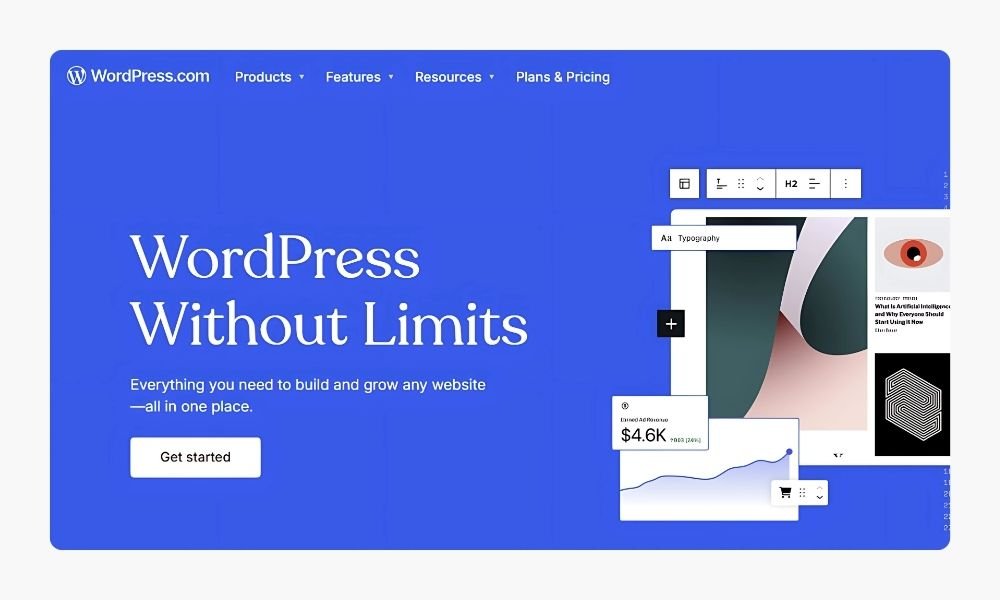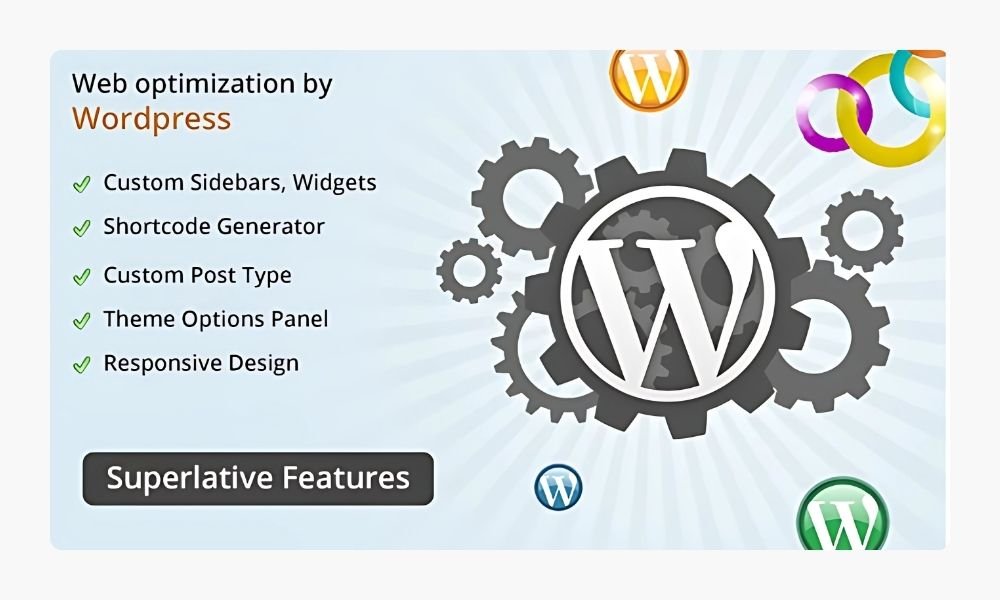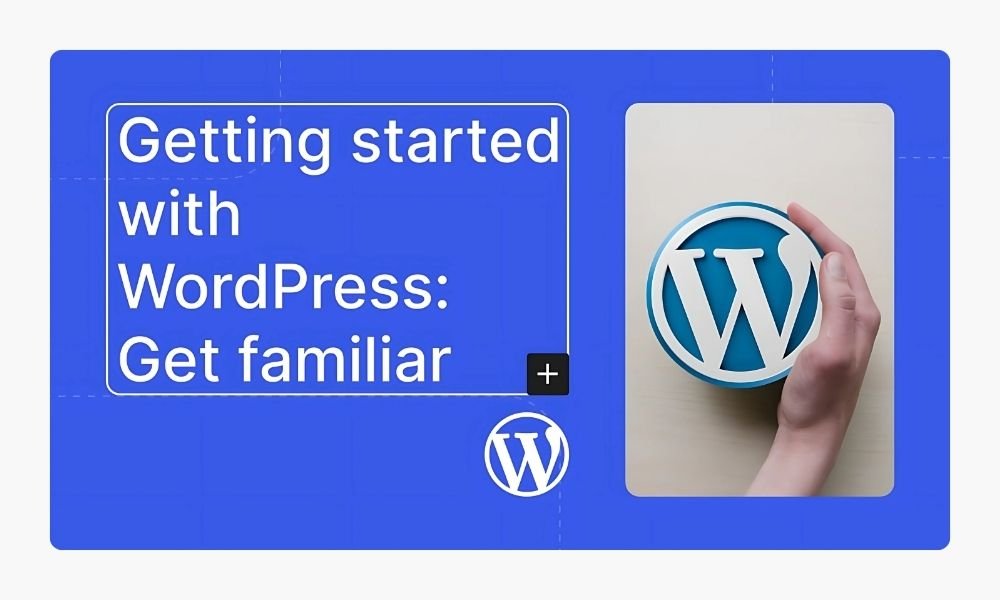When it comes to creating a site, whether it’s for your blog, portfolio, or business, WordPress is one of the most popular choices. I know—choosing the right platform can be overwhelming. But don’t worry, I’ll walk you through why WordPress might just be the tool you need.
In this article, you’ll discover:
- The basics of WordPress
- Key features that make it so popular
- Why it’s the go-to choice for so many professionals
- Different types of websites you can create
- How to get started building your own site
Let’s get started!

What is WordPress?
WordPress is a free, open-source content management system (CMS) that allows you to easily create and manage a website. Originally, it was designed for blogging, but today, it’s evolved into a versatile tool that powers millions of sites around the world. In fact, nearly 43% of all websites are powered by this platform. That’s a pretty big deal!
What makes it so popular is its simplicity, flexibility, and massive community of users and developers. Whether you’re just starting out or you’re a seasoned professional, WordPress gives you everything you need to get your site up and running.

Key Features
Here are some of the top features that make WordPress a top choice for website creation:
Easy to Use
You don’t need to know any coding to use it! With its simple interface, even beginners can start building a site without a hitch. You can easily create pages, posts, and add media with just a few clicks.
Customization Options
With thousands of themes and extensions, you can personalize your site’s design and functionality. From changing the look of your pages to adding features like contact forms or e-commerce functionality, you have endless possibilities.
Search Engine-Friendly
This platform helps you get noticed on search engines right out of the box. It supports SEO-friendly features like clean URLs and easy-to-edit meta descriptions. Plus, plugins like Yoast SEO can help fine-tune your site’s search performance.
Mobile-Responsive
Since mobile browsing is on the rise, it’s crucial that your website looks great on all devices. WordPress themes are designed to be responsive, meaning your site will automatically adjust to any screen size.
Security and Updates
WordPress is regularly updated to keep your website secure and running smoothly. There are also plenty of security plugins available to protect your site from hackers and ensure it stays safe.
Open-Source and Free
This platform is open-source, meaning you can access the code and make changes if you’re familiar with coding. And the best part? It’s completely free to use, though you may need to pay for hosting and premium themes or extensions.

Why Choose WordPress?
You might be wondering, “Why should I choose WordPress over other platforms?” Well, here are a few key reasons why it’s so popular:
Affordable:
The core software is free, and many themes and extensions are available at no cost. You only need to pay for hosting and any premium add-ons you choose. Plus, there are plenty of budget-friendly hosting options.
Scalable:
Whether you’re starting with a blog or a business site, WordPress can scale with you. As your site grows, you can easily add features and upgrade hosting to accommodate more traffic.
Flexibility:
You can create almost any type of site using WordPress. Whether it’s a blog, a portfolio, an online store, or something else entirely, this platform can do it all.
Massive Support Community:
With millions of people using it, you’ll never run out of resources. From forums to video tutorials, help is always available.

Types of Websites You Can Create
One of the great things about WordPress is its versatility. Here’s a quick rundown of the different types of sites you can create:
Personal Blogs:
Since WordPress started as a blogging tool, it’s still one of the best platforms for managing content and engaging with readers. It’s easy to organize posts, add categories, and allow comments.
Business Sites:
Whether you’re running a small business or a large company, WordPress has everything you need, from contact forms to client testimonials. There are plugins to add any feature you need.
Online Stores:
Want to sell products online? WordPress, with the WooCommerce plugin, lets you set up a full online store with payment gateways, product pages, and shopping carts.
Membership Sites:
You can easily build a subscription-based website with plugins that allow for member-only content, paywalls, and directories.
Educational Websites:
WordPress even has tools for creating online courses and managing student progress. Learning management system (LMS) plugins can help you build and sell courses online.

Getting Started with It
Ready to jump in? Getting started with WordPress is simple. Here’s how to begin:
Choose Your Domain and Hosting:
Before you can start building, you’ll need a domain name (like yourwebsite.com) and a hosting provider. I recommend reading my post on selecting a good hosting provider for your WordPress site.
Install WordPress:
Most hosting providers offer one-click installation for WordPress, so it’s quick and easy to get started.
Pick a Theme:
Your theme determines the design of your website. Choose one that fits your style and needs. If you need help, I’ve written a guide on selecting the best WordPress theme for your project.
Install Plugins:
To add functionality to your site, you’ll want to install some plugins. From SEO tools to social sharing buttons, plugins help you get the most out of WordPress. I’ve also compiled a list of essential plugins you might find useful.
Create Content:
Now the fun part—start adding your content! Whether it’s blog posts, product listings, or course materials, WordPress makes it easy to add and organize content on your site.

Common Mistakes to Avoid
Even though WordPress is user-friendly, there are a few common pitfalls to watch out for:
- Overloading with Plugins: It’s tempting to install all kinds of plugins, but too many can slow your website down. Stick to the essentials to keep your site running smoothly.
- Neglecting SEO: WordPress is SEO-friendly, but you still need to optimize your content. Use plugins like Yoast SEO to help improve your website’s visibility in search results.
- Ignoring Updates: Always update WordPress, your themes, and plugins to ensure your site stays secure and runs well.
WordPress is an incredibly powerful
tool for building websites of all kinds. It’s easy to use, highly customizable, and backed by a strong community of users and developers. Whether you’re looking to start a blog, run a business site, or sell products online, this platform offers everything you need to succeed.
So, are you ready to start building your website? If you need more tips or help with plugins, themes, or anything else WordPress-related, feel free to check out my other posts on the topic. And if you have any questions, drop them in the comments—I’m happy to help!


